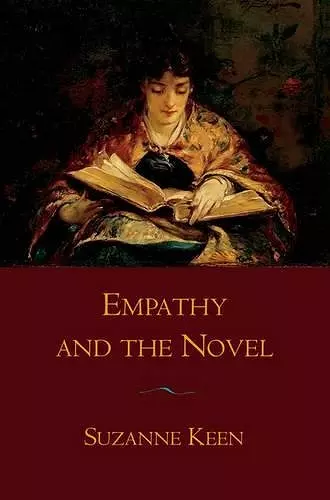Empathy and the Novel
Format:Paperback
Publisher:Oxford University Press Inc
Published:10th Jun '10
Currently unavailable, currently targeted to be due back around 19th September 2025, but could change
This paperback is available in another edition too:
- Hardback£42.99(9780195175769)

Does empathy felt while reading fiction actually cultivate a sense of connection, leading to altruistic actions on behalf of real others? Empathy and the Novel presents a comprehensive account of the relationships among novel reading, empathy, and altruism. Drawing on psychology, narrative theory, neuroscience, literary history, philosophy, and recent scholarship in discourse processing, Keen brings together resources and challenges for the literary study of empathy and the psychological study of fiction reading. Empathy robustly enters into affective responses to fiction, yet its role in shaping the behavior of emotional readers has been debated for three centuries. Keen surveys these debates and illustrates the techniques that invite empathetic response. She argues that the perception of fictiveness increases the likelihood of readers' empathy in part by releasing them from the guarded responses necessitated by the demands of real others. Narrative empathy is a strategy and subject of contemporary novelists from around the world, writers who tacitly endorse the potential universality of human emotions when they call upon their readers' empathy. If narrative empathy is to be taken seriously, Keen suggests, then women's reading and responses to popular fiction occupy a central position in literary inquiry, and cognitive literary studies should extend its range beyond canonical novels. In short, Keen's study extends the playing field for literature practitioners, causing it to resemble more closely that wide open landscape inhabited by readers.
Empathy and the Novel belongs in the company of Peter Brooks' Reading for the Plot as an exciting and lucid reflection on empathy in the novel and on the empathetic effects of narrative on readers. Working at the cross-section of literature, neuroscience, and psychology, the book is a stunningly original, broad-ranging contribution to narrative ethics and to the meanings of emotion in literature, life, and human society. * Susan Stanford Friedman, Virginia Woolf Professor of English and Women's Studies, University of Wisconsin-Madison *
ISBN: 9780199740499
Dimensions: 234mm x 156mm x 15mm
Weight: 390g
276 pages